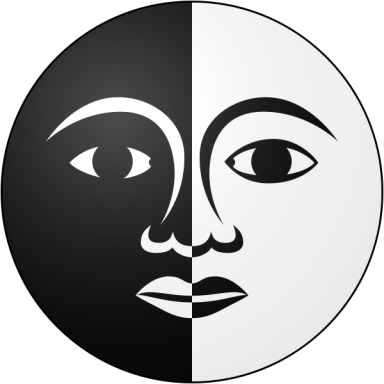The origin of every US state's name


This took a lot of research.
For almost every state there are multiple stories behind the name, but I've done my best to double and triple-source each of the ones included.
In the cases of words from native American languages, I have cross-referenced the information with that given on the official websites of the relevant tribes and nations.

If I understand correctly, almost all the states' names are of two origins. Either:
- Long dead kings that no one remembers...
- Native American words and phrases whose meanings we immigrants promptly forgot.

Tags
Who is online
87 visitors

All corrections are welcome, of course...
I'm looking at you, Kavika...
Long dead kings that no one remembers...
- Native American words and phrases whose meanings we immigrants promptly forgot.
Probably true in most cases. But I was thinking "Vermont" (French for "Green Mountains"-- which is actually appropriate).
"Long dead Kings" might be more accurate if changed to long dead leaders. (Probably mostly Kings, but I believe some were other types of political leaders)
I just checked a few I was wondering about. "Oregon" is interesting-- there's some debate about it. I googled it-- it seems there are about ten different theories!!!
I just checked a few I was wondering about. "Oregon" is interesting-- there's some debate about it. I googled it-- it seems there are about ten different theories!!!
I haven't look at that video yet, I'm wondering what he found.
A few years ago a Native American named Aaron Carapella, a self-taught mapmaker in Warner, Okla., has pinpointed the locations and original names of hundreds of American Indian nations before their first contact with Europeans.
Most native tribes' names are a bastardization of the original name or simply not even close to our authentic names. For example, my tribe is called the Ojibwe and/or Chippewa. Ojibwe is from a French word translated to mean ''to pucker'' which refers to the way we burn the edges of our moccasins causing them to pucker. The English used Chippewa because they couldn't pronounce the word Ojibwe and there is no translation of the word Chippewa because it means nothing. The real name that we have had for thousands of years is ''ANISHINAABE'' translated to ''original people or first people or good people.'' BTW, just to complicate matters we have two alphabets, the single vowel and the double vowel and we have had a written language for a thousand years no matter what the so-called experts say and example of it can be seen in the Smithsonian and its around 600 years old.
So much for lesson one of Indian 101.
Baamaapii niijii (until later my friend)
A fun and enjoyable video, thanks for posting it.
From the several Indian names I know (or more accurately from those I've come across-- place names mostly, across the U.S.-- well also Indian names in Mexico) it seemed to me that many of them have double letters-- mostly consonants. A few I can remember: Mississippi, Amagansett, Massachusetts, Tennessee.
Week 1: Pronunciation Guide for the Double Vowel System
We are going to learn and use the Double Vowel System here, which was developed in the later twentieth century by Charles Fiero and John Nichols. As a writing system, it is very often used in the United States and Canada among language teachers and it is used in most Ojibwe language books. Although the letters used are taken from the English alphabet, the sounds of some of the letters are a little bit different.
The Ojibwe Alphabet is a, aa, b, ch, d, e, g, h, i, ii, j, k, m, n, o, oo, p, s, sh, t, w, y, z, zh and the glottal stop ' .
The Ojibwe alphabet has no C, F, L, Q, R, U, V, or X.
Ojibwe Vowels : The 7 vowels are a, aa, e, i, ii, o, oo. Four of the vowels are long… aa, e, ii, oo. Three of the vowels are short… a, i, o. The long and short refer to the amount of time you hold on to the sound when you say it.
a - makes the "uh" sound as in the English word " a bout"
aa - makes the "ah" sound as in the English word "c o b"
e - makes the "ay" sound as in the English word "caf e "
i - makes the "ih" sound as in the English word "p i n"
ii - makes the "ee" sound as in the English word "s ee "
o - makes the "oh" sound as in the English word " o bey"
oo - sometimes makes the same sound as the "oa" in "b oa t" and at others the same sound as the "oo" in "b oo t"
Ojibwe Consonants : All of the consonants are hard sounding. For example, in English the "G" can have two sounds as in "Great" and "George." The "G" in "Great" is hard sounding. With the following chart, the English sound equivalent is bolded.
b - b rave
ch - ch ampion
d - d reams
g - g reat
h - h ope
j - j ovial
k - k eep
m - m erry
n - n eed
p - p ride
s - s un
sh - sh ine
t - t ime
w - w ishes
y - y ams
z - z oo
zh - mea s ure
‘ - uh - oh (the short pause you use between the uh and the oh is the equivalent to the glottal stop)
I find that if you concentrate on the vowels, it will be easier to learn. Most of the consonant sounds are the same as in English. The only problems I've witnessed students having with the consonants, is keeping the "G" hard, and pronouncing the "J" as in "jump" or "jovial" and not with a softer "zh" sound.
Other Sounds: These letters together make different sounds.
ay - b uy
aw - ou ch
Nasalization:
Some places will use the "nh" on a word to show a nasalization sound. Other places will use an underline to show nasalization.
The Anishinaabe Hangout Crew talk about dialects and Ojibwe sounds .
I've heard a different interpretation for Ohio - "river of the whitecaps", referring to appearance of the waves.